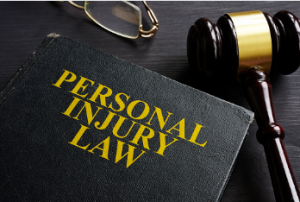Before you can distribute the assets from a deceased estate, you need to sort through all of the business documents that have been left behind. As the beneficiaries, you have a year to sort out the estate. Otherwise, you could pay interest on assets that you did not receive. It is also crucial to settle any outstanding bills, debts, and taxes. After all, if you don’t do it now, the taxman will take your inheritance away and never give you your money back.
Property that is included in a deceased estate
 What’s included in a deceased estate? Estates include the personal property and debts of a deceased person. They are distributed among surviving relatives and friends following instructions in a will or intestacy rules. The assets not included in an estate will be subject to interest charges. Often, a deceased person would have a tenant in a common arrangement. This arrangement makes it easier for assets to be distributed to beneficiaries.
What’s included in a deceased estate? Estates include the personal property and debts of a deceased person. They are distributed among surviving relatives and friends following instructions in a will or intestacy rules. The assets not included in an estate will be subject to interest charges. Often, a deceased person would have a tenant in a common arrangement. This arrangement makes it easier for assets to be distributed to beneficiaries.
If the deceased had a joint tenant, they would transfer the property to the new joint tenants when the deceased died. However, if a deceased person had life insurance policies or RRSPs, these would not be included in an estate. In addition to the beneficiaries of an estate, personal representatives may be personally liable for debts owed by the deceased. In such a situation, the personal representative would be liable for paying off the debts owed from the estate. Learn more from williamslegal.com.au.
Once an individual has been appointed as the personal representative of a deceased estate, they must transfer the balance of the deceased’s bank account into the estate’s account. In addition, the personal representative must reimburse any debts or expenses that are incurred before the estate qualifies for a debtor’s creditor. The personal representative should also maintain detailed records for all transactions in the estate bank account, which will help prepare estate tax returns and accountings. The personal representative should save original receipts as supporting documents.
Property that is not eligible for inclusion in a deceased estate
The Gross Estate is the value of all of your property at your death, including any transfers that take effect at your death but have a lifetime enjoyment right. When you die, you can’t take everything with you. Some items may be excluded from your Gross Estate, but others aren’t. Property owned outright, for example, is the easiest and most obvious type of property to exclude from a deceased estate. Other types of property are property owned by the decedent or in which the decedent held a general power of appointment. Learn more from williamslegal.com.au.
Process of administering a deceased estate
The process of administering a deceased estate with the help of williamslegal.com.au involves the collection and distribution of the decedent’s assets. Assets are divided among the heirs after the debts are paid. The estate administrator collects all assets and property to make a final inventory. If the decedent had a bank account, it should be consolidated into one account. If not, an attorney can help you open one so you can keep track of all expenditures.
Usually, a deceased person with assets of more than de minimis value must appoint a personal representative. This representative can be an individual, bank, or trust company. The executor must open an estate checking account with a bank or financial institution to handle the deceased’s assets. The executor can deposit cash, pay bills, and distribute assets in this account. It is important to know these duties before the executor is named.
The process of administering a deceased estate can be confusing. If a person dies without leaving a will, a qualified administrator must be appointed. This person will have to act in a fiduciary capacity and represent the interests of the surviving family and creditors. A court will also appoint an administrator if no one can handle the estate. However, even if there is no will, an administrator will be required to account for the beneficiaries, creditors, and other family members or friends.
While administering a deceased estate can be complicated, it is necessary. A court-appointed loved one will be entrusted with a lot of responsibility. Knowing more about the administrator’s responsibilities and how to prepare can help you make the process easier. And remember: it is never too late to start planning ahead of time. If you do nothing else, estate planning is the best way to ensure that your loved ones are ready for the task.
In most cases, administering deceased estates begins with a request to the probate court. If the decedent died intestate, the executor or personal representative must file a petition in the probate court to be appointed as administrator. The court will then determine who is best qualified to carry out the role. For instance, if a surviving spouse was the primary applicant, the court may choose an adult child, parent, or other family members as the best candidate. After the court has chosen the executor or personal representative, that person will receive the necessary legal documents and letters of authority to proceed.
Tax implications of administering a deceased estate
If a deceased person leaves no will, there are many tax implications for administering their estate. The deceased’s estate may be subject to capital gains tax, even if it was not taxable at the time of the deceased’s death. This tax is calculated on the sales proceeds less the value of the assets when the deceased’s death. While the estate may not be complex, the personal representative must file a tax return for any period after death.
Identifying and claiming probate assets are only some of the tax and estate tax implications. In addition to paying creditors and debts, the executor must transfer the net assets of the deceased to beneficiaries. In addition to the executor’s responsibilities, the financial advisor should be aware of all possible inheritance tax implications. Having a good financial advisor is crucial if you plan to liquidate the estate assets.
If the deceased person had assets, the executor is responsible for lodging the estate tax return. Generally, this is a relatively simple process. In some cases, the deceased person had a lower income than the executor, but the estate tax is higher than the individual tax rates.
 The team of experienced personal injury lawyers Adelaide at Millner & Knight is an excellent choice for your case. They offer a no-win, no fee agreement and free initial consultations to assist you with your case. Firths have been consistently ranked as the best law firm in the region, and the firm handles claims for public liability, workers compensation, and motor vehicle accidents. You should contact them immediately for further information.
The team of experienced personal injury lawyers Adelaide at Millner & Knight is an excellent choice for your case. They offer a no-win, no fee agreement and free initial consultations to assist you with your case. Firths have been consistently ranked as the best law firm in the region, and the firm handles claims for public liability, workers compensation, and motor vehicle accidents. You should contact them immediately for further information.